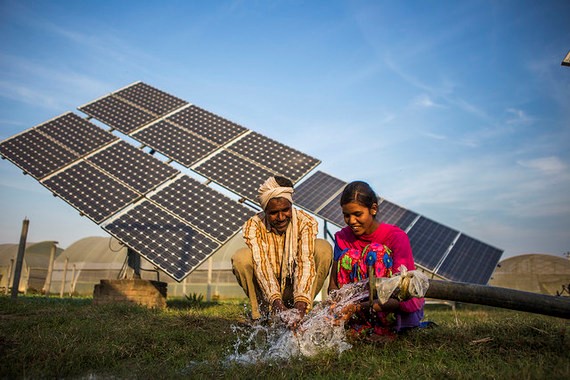
For most of us in Europe, 8th August is just another summer's day. But it also marks a more chilling moment in our calendar: the day our world starts going into debt. By the 8th we will have used up the supply of natural resources that the Earth can regenerate within one year. For the remaining 40 percent of the year, we will add to the overdraft of nature's budget.
Called 'Earth Overshoot Day', it is a stark reminder that the planet we live on has natural limits within which we must live. And perhaps no other sector is feeling these boundaries more than the agriculture sector that feeds us. As the population surges and our diets become more resource-intensive (think meat, dairy, oils), agriculture is faced with the Herculean task of meeting an ever-increasing demand for food while helping to sustain our landscapes and the very biosphere of the Earth itself.
Today, agriculture is the world's single largest driver of global environmental change, much of it negative. So the basic challenge is this: can we produce even more food by intensifying our agricultural production, yet stay within the Earth's budget? Can agriculture become a key contributor to a global transition to a sustainable world? According to a recent paper published in scientific journal Ambio, the answer is yes, if we take better care not to cross the 'planetary boundaries' that affect our food system most directly. This is what we need to do.
We need to make our soils a carbon trap. We must transform agriculture from the world's single largest source of greenhouse gases into a major sink by adapting the way we farm so we capture carbon in the soil. According to the Intergovernmental Panel on Climate Change, about 90 percent of agriculture's technical potential to reduce the effects of climate change lies in this very method.
Read more at: http://www.huffingtonpost.in/entry/can-our-weary-world-keep_b_11388804
This news item is part of a Partner Spotlight! Each week, the GFAR Secretariat is turning the spotlight on the work and collective actions of Partners in GFAR who share in our mission to strengthen and transform agri-food research and innovation systems globally. For the week of 29 August - 2 September, we are celebrating our partner: International Water Management Institute (IWMI).
For more information on the Partners in GFAR, and to become a Partner, click here!
Photo credit: Prashanth Vishwanathan (IWMI)
